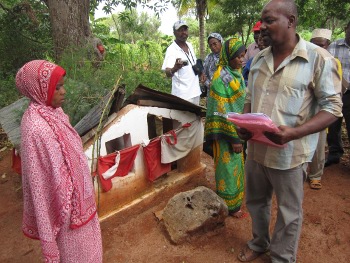 United Republic of Tanzania became a State Party to the 2003 convention for the safeguarding of the Intangible Cultural heritage on 18 January 2012 and then joined the list of other countries that have so far ratified the convention. Following this landmark achievement, our office jointly with the Ministry of Information, Youth, Culture and Sports have progressively worked towards the smooth implementation of that convention. This effort is in line with UNESCO bids to strengthen the capacities of States Parties.
United Republic of Tanzania became a State Party to the 2003 convention for the safeguarding of the Intangible Cultural heritage on 18 January 2012 and then joined the list of other countries that have so far ratified the convention. Following this landmark achievement, our office jointly with the Ministry of Information, Youth, Culture and Sports have progressively worked towards the smooth implementation of that convention. This effort is in line with UNESCO bids to strengthen the capacities of States Parties.
Community- based inventorying workshop
The workshop on community –based inventorying took place in Zanzibar from 6 to 10 February 2012 at Bwawani Hotel. This workshop was convened as a follow –up of the much successfully implementation workshop held in September 20011 at the National museum of Tanzania.
The general objective of the workshop is to build capacities of cultural officers and stakeholders on community–based inventorying of intangible cultural heritage present within the territory of the United Republic of Tanzania with a view to implementing the 2003 UNESCO Convention on Safeguarding of the Intangible Cultural Heritage.
As key results, the participants revisited the basic text of the convention , the intangible cultural heritage inventorying under the convention as well as the evaluation based on the text of the convention on safeguarding of the intangible cultural heritage.
The participants developed a general framework of the inventorying of an Intangible cultural heritage. That framework was used during field visits undertaken in Makunduchi community: Zaituni, Pangani and Mwanampambe sacred places. During those fields visits, the participants met bearers and the practitioners of the ICH Of Makunduchi community.
A draft work plan was finalized and approved by participants. The Director of Culture and Development and the Commissioner for Culture and Sports in Zanzibar who were attending the workshop promised to share the roadmap with their respective Ministers of Culture and get its approval.


